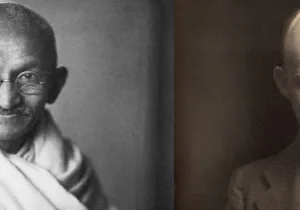“Evangelism,” by John C. Bennett
February 3, 1947
Evangelism is a word that has bad connotations for most Americans. It suggests high pressure emotional appeals to suggestible crowds. It suggests narrowness and intolerance and spiritual imperialism. It suggests unfortunate encounters with professional evangelists, perhaps today more often met in novels than in real life. But evangelism is neither more nor less than the effort to confront people with the claims of the gospel, the witnessing to the truth of God’s revelation in Christ. It is the effort to bring those who are now outside into the fellowship of the Church. No amount of general exhortations about the fallacies of secular philosophies, or about the actual or potential contribution of the Church to the life of the world can be of much use in the long run unless men and women come into the Church, not primarily because the Church is good for the world, but primarily because its faith is for them the deepest truth about life, about their own lives, because in its worship they find their God.
Undoubtedly the conventional methods of evangelism now prove inadequate in our situation. Where they do have the greatest apparent success, as in the “Youth for Christ” movement, they are used to present a soothing distortion of the Gospel that offers a promise of salvation for the individual without, first of all, making him aware of the searching judgment of God upon him in every phase of his life. But these movements show up the failure of the Churches to find a way to bring to youth both Christian judgment and Christian promise. One of the finest evangelists in Great Britain, who has also had years of experience in India, has recently written: “In the twentieth century it has become plain that most of the traditional methods of evangelism are now bankrupt.”
More serious than the failure of evangelistic methods is the fact that the Churches are themselves so often obstacles to the persuasiveness of their message. There are many forms of this difficulty but we see it chiefly in the failure of the Church itself to grasp the full depth and range of the Christian gospel and in the extent to which the Church reflects in its own life the denials of brotherhood that are characteristic of society at large. The call to the Church to go out and seek the millions at its very door who have never acknowledged Christ is always at the same time a call to the Church to be changed in its own life.
There is another cause of the weakness of the evangelistic efforts of the Church, a perennial factor and yet in our time more than usually pronounced. It is the distance between the Christian gospel and the natural assumptions and expectations and desires of men. In all ages the Cross has been a stumbling block to the Jews and foolishness to the Greeks, and in all ages Christian faith and commitment have required a change of mind that is not easy.
But when all of these difficulties have been weighed there is one consideration that today seems more important than any of them. It is the fact that many millions of people, perhaps scores of millions, in our own nation, in all classes, have never in their lives heard a comprehensive and relevant presentation of the Christian gospel. Christianity for them has always meant some poor stereotype that any man with a feeling for reality would reject. When once such rejection has taken place, the inhibition against opening the mind and heart to Christian truth is very powerful.
We can see what is possible on a much larger scale if we consider the individuals in recent years whose inhibitions have been broken down when they learned with surprise both the extent to which the Christian diagnosis fits their condition and the condition of their society and the extent to which the good news of Christian faith answers their questions and fulfills their aspirations. While the war has produced no general religious revival, many individuals in the Armed Services have had that experience. They have learned almost by accident that Christianity does not set a premium upon superstitious self-deception, that it is not an opiate or an escape from reality, that it is not narrowly legalistic, that it is not irrelevant idealism. To remove these misunderstandings will not of itself win people to Christ but unless these misunderstandings are removed the very persons who are inwardly most ready to become Christians will continue to reject Christian faith. Now is the time to concentrate on the responsibility to give everyone a chance to hear the Gospel, the full range and depth of it, for the alternative faiths that have most believers in America, especially the faith in man’s control of his destiny through self-sufficient science, become daily more incredible. The urgency of this is to be measured not only by the threatening sickness of civilization but by the fact that in the case of every individual there is not much time to decide by what faith he is to live or die.
John Coleman Bennett was a co-founder of Christianity and Crisis with Reinhold Niebuhr and later served as the president of Union Theological Seminary from 1963 to 1970. His books include Christian Ethics and Social Policy, Christians and the State, and Foreign Policy in Christian Perspective.






 Live in the DC area? Sign-up for Providence's in-person events list!
Live in the DC area? Sign-up for Providence's in-person events list!